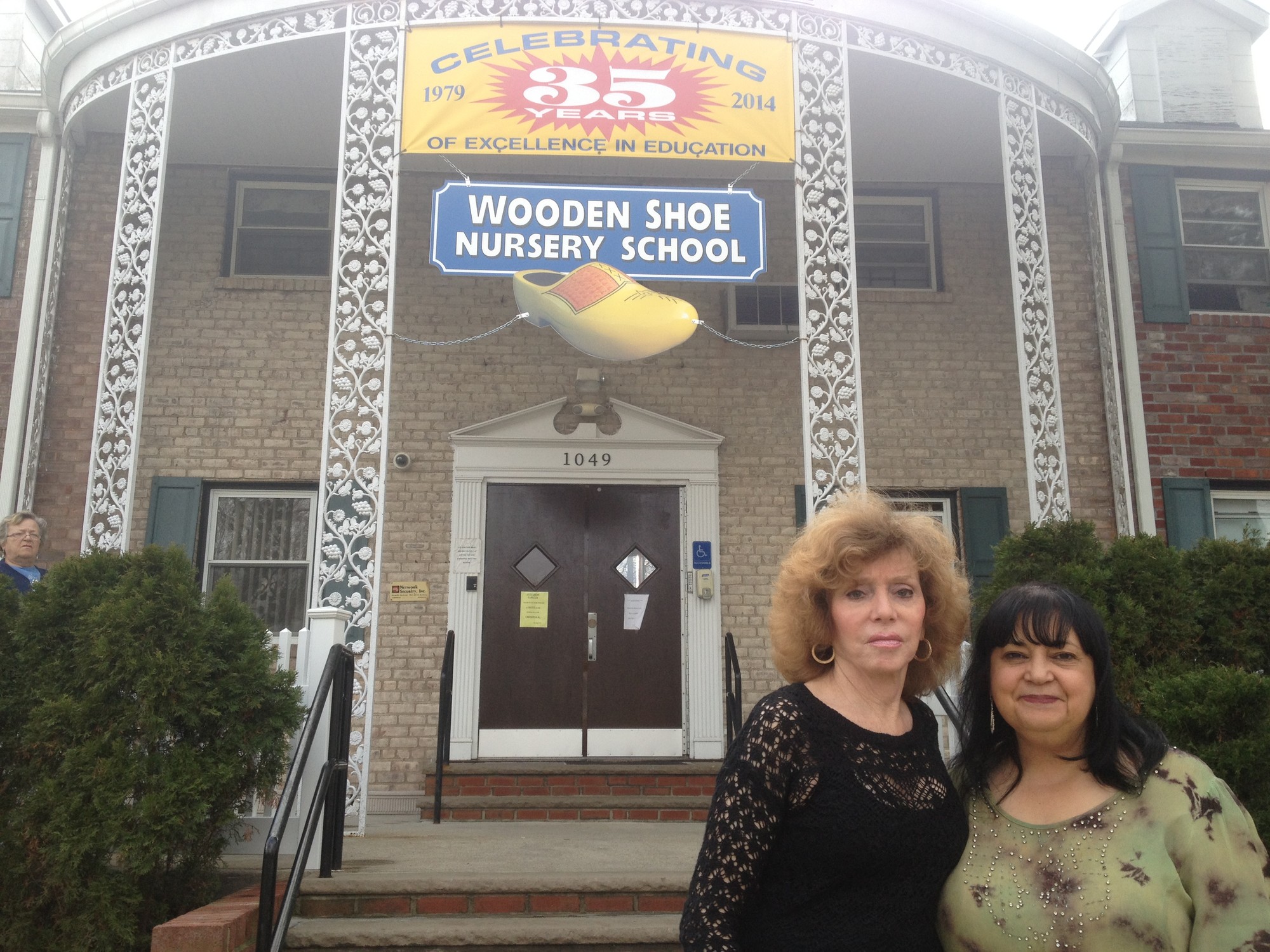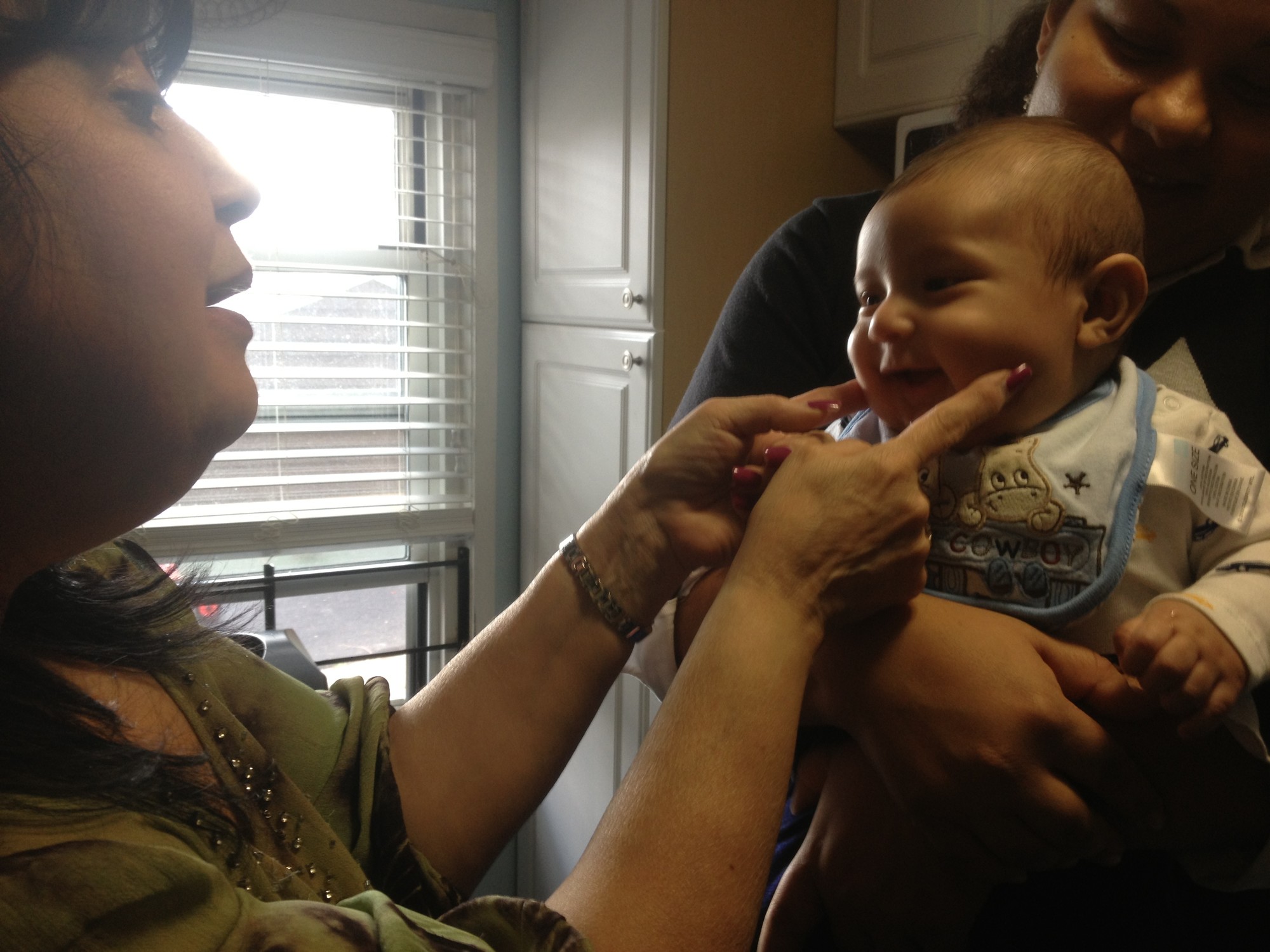Nursery school takes a look back
After 35 years in operation, the Wooden Shoe nursery school is as vibrant as ever, and its owner attributes its success to her staff’s attention to the children and to her own philosophy about caring for the youngest members of the community.
“This is not just a business,” said Rosemarie Meyer, who opened the school on Nov. 19, 1979. It began with seven children in the main room of the present building. The surrounding rooms were rental apartments then.
“My family was against it,” said Meyer, 62. “In those days, you were expected to stay home while your husband worked.”
There were few daycare options then, and Meyer, who had a teaching degree, couldn’t find care for her two children, ages 2 and 3. She found the building and fell in love with it, she said, and hatched an idea. She took a $10,000 loan from her then-husband for rent and lawyer fees and opened her own daycare. It would be three years before she turned a profit.
She couldn’t afford employees so she assumed all the duties - child care, cleaning and transportation. She used her station wagon to pick up kids before she got a bus in June 1980.
By 1981 Meyer had 50 children in her care. Her staff grew, as did the school’s reputation, which Meyer said came mostly through parent recommendations. She now employs 40 people – the youngest is 21, the oldest is 74 - and keeps a steady enrollment of about 125 children. Many of them come from parents who themselves attended the Wooden Shoe as children. The school currently has a five-star community rating on Greatschools.org, a website where parents can review their kids’ schools.
Meyer, who taught in the continuing education department at Molloy College for 15 years and has seen other toddler programs modeled after hers, said her management style demands that she constantly be on site.
“She practically lives here,” said her sister, Theresa Masi, the school’s bookkeeper and financial advisor.
Meyer said the profit margin is small, but she called every day an adventure. “The best part of the job is the innocence of the children,” she said. “The kids being happy, safe and secure is my glory.”
She’s had to face some unpleasant realities to evolve that security. She sometimes finds herself caught in the middle of messy custody battles or has to deal with orders of protection. In one case, a father tried to abduct his child one morning as the bus unloaded in front of the school. In the wake of Sept. 11 and school shootings around the country, Meyer got training in crisis protection, including active shooter scenarios. As with the village’s public schools, identification is required to enter the building, and recorded closed-circuit television monitors each room, sending a live feed to a large screen above Meyer’s desk.
She said she encourages her staff to get extra training and to continue their education. She also offers training and workshops for parents. She sees her role as being an advocate for the children and their needs, especially at a time when many parents feel guilty about not being more available and compensate by giving their kids too much freedom. One of the most difficult parts of the job can be talking to parents, Meyer said.
Valley Stream’s changing demographics are reflected in the school’s population and staff, and the last decade saw a big increase in the diversity of students. Most parents want their kids in such a setting, though some have expressed some discomfort with the prospect, Meyer said.
“The children don’t discriminate,” she said. “It’s the adults that do.”
For the most part, the school’s run has been and continues to be an enriching and rewarding experience, said Meyer.
“Thirty-five years speaks for itself,” she said.

 44.0°,
Mostly Cloudy
44.0°,
Mostly Cloudy 







